Russia reaffirms commitment to nuclear test ban amid Trump’s remarks; warns of response if US resumes testing

“Putin has repeatedly said that Russia adheres to its obligations under the nuclear tests ban and we are not going to carry them out,” Peskov said. “However, if another country does, we will have to do so to observe parity.” He emphasised that maintaining nuclear parity remains a cornerstone of global security, underscoring that Russia’s stance depends on Washington’s actions.
Trump’s statement sparks global attention
The clarification from Moscow follows Donald Trump’s controversial post on his social platform Truth Social on October 29, where he claimed to have instructed the “Department of War” to resume nuclear weapons testing on an equal footing with Russia. Trump wrote, “The United States has more Nuclear Weapons than any other country... Russia is second, and China is a distant third.” He added that although he “hated to do it,” he felt he had “no choice” but to resume testing due to “tremendous destructive power.”
His remarks sparked concern among arms control advocates and drew attention in Moscow, prompting Russian officials to restate their position on nuclear restraint.
Moscow awaits US response on arms treaty
Commenting on Putin’s proposal to extend a voluntary freeze on strategic weapons after the expiration of the New START Treaty in February 2026, Foreign Minister Sergei Lavrov said Russia is still waiting for a formal response from Washington.
Lavrov told RIA Novosti that Putin’s initiative was transparent and constructive, saying, “It is free of any hidden agenda and easy to implement. We are told the matter is being considered, and we hope for a positive outcome.”
The New START Treaty
The New Strategic Arms Reduction Treaty (New START) was signed in 2010 and came into effect in 2011. It limits both the US and Russia to 1,550 deployed warheads and 700 strategic delivery systems each. Although extended for five years in 2021, verification activities have been suspended since the outbreak of the Ukraine conflict and subsequent sanctions. Both nations, however, have agreed to voluntarily observe the treaty limits until 2025.
In September 2024, Putin offered to extend the voluntary moratorium for another year, signaling Moscow’s continued willingness to avoid a new arms race. In recent weeks, Russia tested its Burevestnik nuclear-powered cruise missile and the Poseidon underwater drone, both of which have unlimited range. The tests raised concern in Washington, though Russian analysts clarified that these do not qualify as nuclear tests, since no nuclear detonation was involved.
The United States, for its part, recently tested a Minuteman III ICBM without a nuclear payload.
Russia’s last “hot” nuclear test was conducted in 1990, while the United States carried out its final one in 1992. Since then, both countries have observed a moratorium on live nuclear detonations, in line with the Comprehensive Nuclear-Test-Ban Treaty (CTBT), even though neither has formally ratified it.
About The Author
Welcome to Aryan Age, an English newspaper that has been serving readers since 2011 from Delhi. With a loyal circulation of over 19,000, we are dedicated to providing our readers with the latest news and information, as well as insightful analysis and commentary that help them navigate the complex and rapidly changing world.

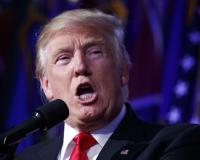
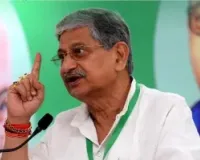
.webp)
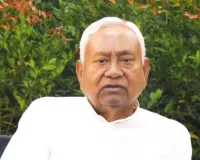

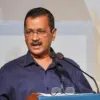


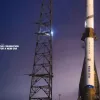

Comment List